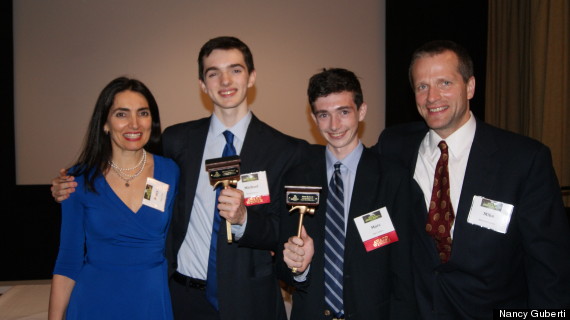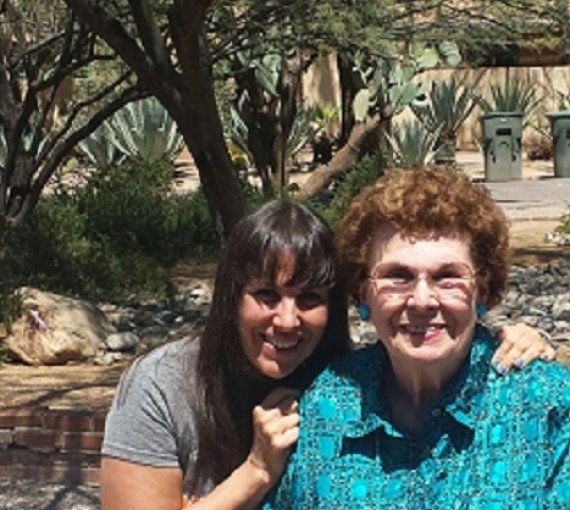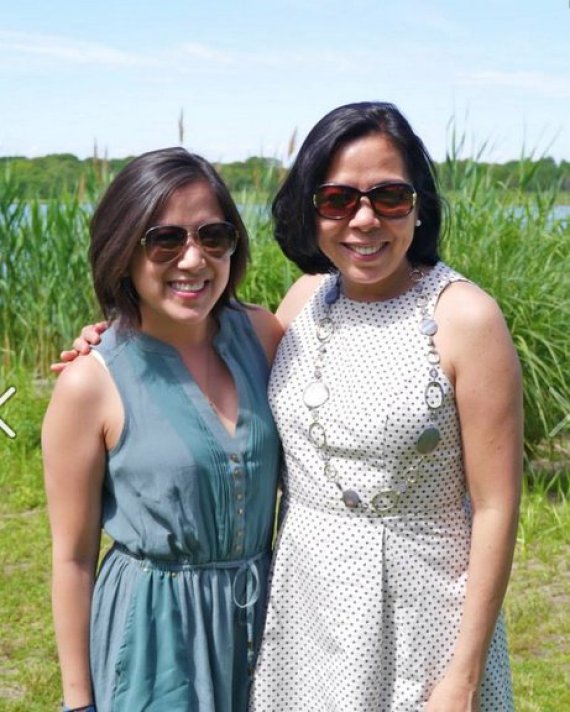From the time you were a little peanut up until, well, your
last phone call, your parents have dispensed pearls of wisdom and
ushered you into adulthood in their unique way. As a kid, their corny
sayings and strange mannerisms drove you up the wall, and you swore that
you’d never, ever be the same way.
In honor of this moment of realization, we’ve partnered with Toyota to bring you some classic tales of “oh my god, I’m turning into my mother/father."
Here are the life lessons we learned along the way.
LESSON #1: Put this one in the memory box (and this one…and this one…)

Natasha Huang is a page right out of her mother’s book. While she’s all about fashion and flashy trends, she’s said that she’s begun to take style cues from her more conservative mom -- and her mom has even started to borrow her clothes.
Natasha Huang
Another moment was when I started realizing I was hoarding ‘memories.’ I used to make so much fun of my mom for keeping absolutely everything as a memory and I find myself having a walk-in closet and a loft packed with memories and items of things I can’t let go of that remind me of great times.
LESSON #2: Never, ever, ever give up.

In common parenting parlance, the official name for a persistent child is a “nudge.” But Nancy Guberti, a former executive at Goldman Sachs turned entrepreneur, has passed on that trait after coming face to face with her son’s serious illness. Now, her preternaturally mature children, ages 16 and 18, have started a Teenager Entrepreneur boot camp at Fordham University to help others find their passions.
Nancy Guberti
I would basically use this phrase: there's more than one way to skin a cat. if one door is not opening, and someone isn't working with you, find someone who will help, or go through a back door.Michael Guberti, host of Teenager Entrepreneur Bootcamp
I learned the importance of persistence as well as well as patience! To know when to ramp it up and to be extremely determined and know when to sit back a little bit and let the fruits of your labor take hold. To do your best always; to fly high but stay grounded.
LESSON #3: It's just homework.

Nancy Shenker is the founder and CEO of New York-based marketing company theONswitch.
Nancy Shenker
I spent one eternal hellish year -- ninth grade -- in private high school. A straight-A student, I was always plagued by science. It didn't come naturally to me and I would stare for hours at the periodic table or at chemistry formulas as if they were written in Urdu. After a torturous two hours of plowing through a particularly difficult homework assignment, I came downstairs in total panic, sobbing hysterically.Excerpted from a letter to The New York Times
''I don't get it!'' I pronounced.
''So, what will happen if you fail science?'' my sage father asked.
''I won't get into a good college,'' I bemoaned.
''So?'' he responded.
''I won't get a good job,'' I pronounced.
''So?'' he continued.
''I won't make a lot of money,'' I went on.
''So?'' he asked.
And I stopped crying for a moment, thought about it and shrugged, wondering if that one page of science was, indeed, a predictor of my entire life's happiness and success. I went back upstairs and finished the task at hand.
Epilogue: I did fairly well in the class. And I never forget to think ''So?'' when tackling life's homework assignments.
LESSON #4: Know when to demand perfection, and when to let it go.
Crystal Trinh is an NYC native. It turns out that she and her mother share a perfectionist streak, especially in the kitchen.

Crystal Trinh
Food is very central in my family. My mom’s always feeding me and giving me way too much food to take home. She has no concept of portions for one person.
As an Asian family, we always cook all day to prep for family gatherings, and I have memories of sitting around, rolling egg rolls together, and my mom would critique my rolls to make sure they’re the right length or not stuffed too much.
I recently was doing this with my (much younger) little sister, and she was getting distracted -- making triangles, playing with the eggroll skins and so on. I caught myself critiquing her egg rolls (which were far from perfect) and saying to her, How are you so bad at this?! Haven’t you been raised doing this for years?! Kids these days!
Anyway, cooking food together and being a total perfectionist is a tradition in my family. Of course, I was being a crazy person and projecting this onto my little sister. They’re just egg rolls!
LESSON #5: Never settle for less.

TierraNicole Taylor describes herself as “definitely my mother’s child,” which means that in addition to sharing the same name, they are nearly the same height, have the same mannerisms and distinct way of gliding across a room. She says her mother is “the best thing that has happened to me.” She continues: "While I was away at college, I experienced a particularly tumultuous phase with friends, acceptance, and 'finding' myself. Three years down the line and several emails, phone calls, Skype dates, care packages, and Facebook statuses later, I've learned that the value in being away from the ones we love teaches us that distance is the best teacher of love."
TierraNicole Taylor
From my mom, I learned that persistence is key. This wonderful woman decided to go back to college when I reached high school. She completed her bachelor's degree in 2008 and even went on complete a master's in educational technology in 2011 ... all while raising me through high school and the first two years of my own college career. Settling has never been an option for her, and what she has achieved so far continues to show me that persistence reaps far greater rewards than any virtue in life.
http://www.huffingtonpost.com/2014/11/24/family-memories-roundup_n_5772140.html#eyJocmVmIjoiaHR0cDovL3d3dy5odWZmaW5ndG9ucG9zdC5jb20vMjAxNC8xMS8yNi9hcmlhbmEtZ3JhbmRlLWJldHRlLW1pZGxlcl9uXzYyMjQ3NDIuaHRtbD9uY2lkPXR4dGxua3VzYW9scDAwMDAwNTkyIiwiYWRVbml0Ijp7InNlcnZlciI6ImlidyIsImlkIjoiOTM0MTY2MjEiLCJtb2JpbGUiOmZhbHNlfSwibGFiZWwiOiJBcnRpY2xlIFBhZ2UtIFJpZ2h0IFJhaWwgVW5pdCBQSE9FTklYIiwic2VsZWN0b3IiOiIubW9zdC1wb3B1bGFyIiwiY3JlYXRpdmUiOiJmZTgwNjJkODA1M2I0NmQ3YjFjM2Y4MjgwMWZlNTc2NiIsImV4cGVyaWVuY2VUeXBlIjoiaW5ib3VuZCJ9


